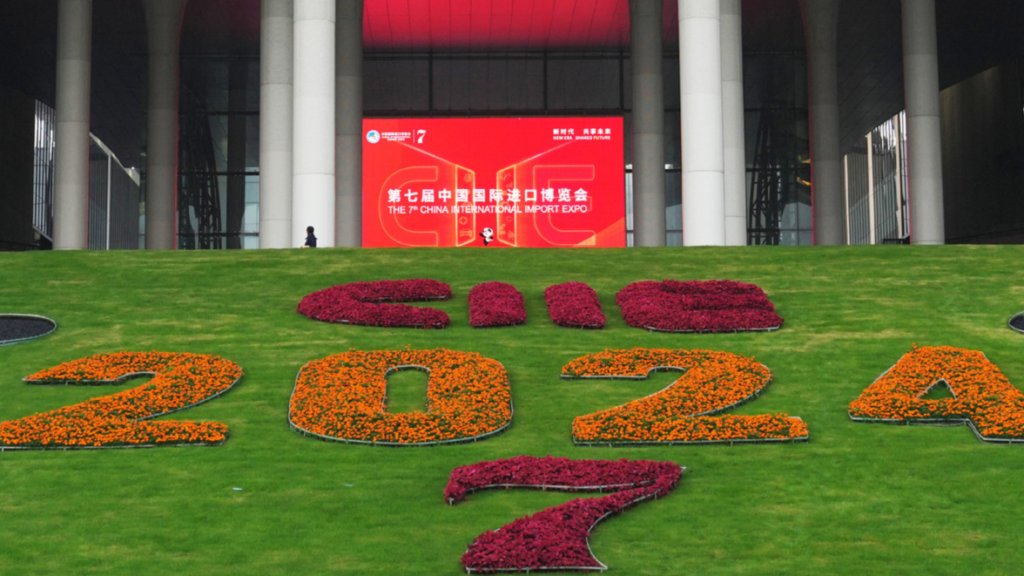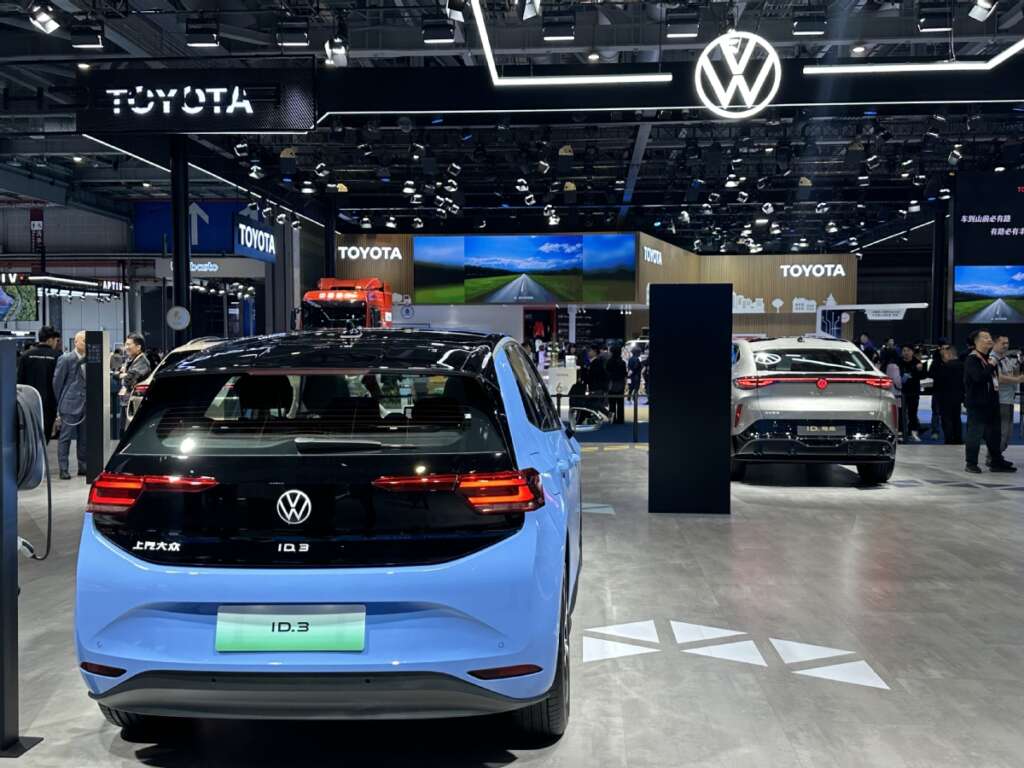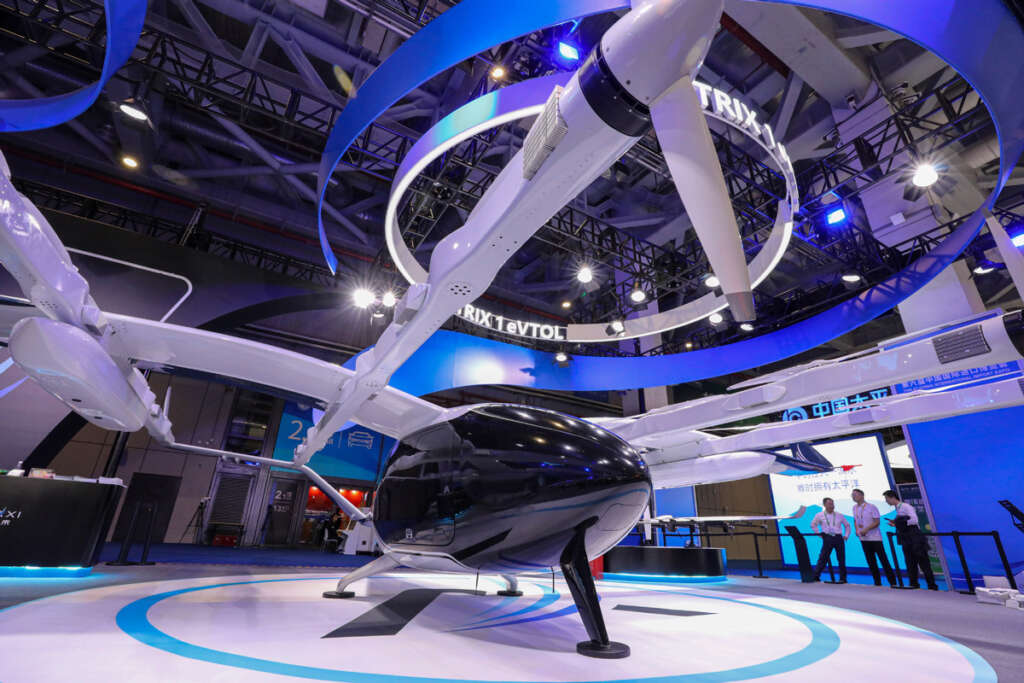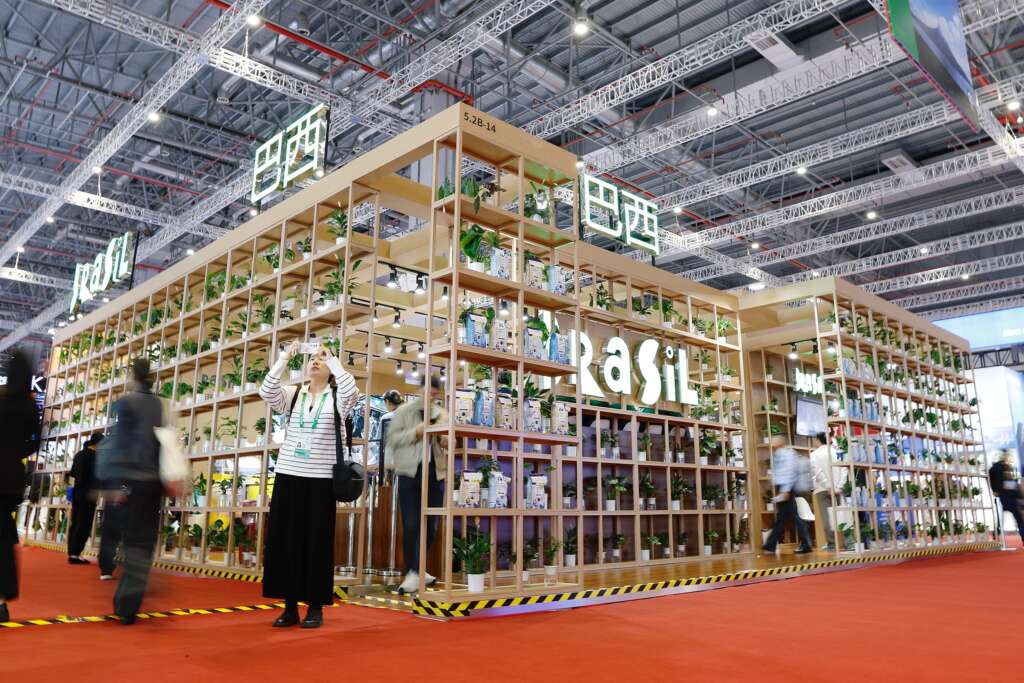THE 7TH CHINA INTERNATIONAL Import Expo (CIIE) filed a record number of business deals, with more than US$80 billion in agreements by Mainland and overseas enterprises. This is the highest in its seven year history.
One of the world’s biggest import and trade shows, the expo at the National Exhibition and Convention Center in Shanghai hosted 3,490 exhibitors from 129 countries and regions in enterprise and business exhibition zones.

Among those exhibitors, a record number of about 290 were Fortune Global 500 companies, including Volkswagen, Ford, General Motors, Honda, Johnson & Johnson, Microsoft. Among those multi-international companies, about 180 joined the expo for the seventh consecutive year since 2018.
The transaction value of business deals at the November event rose 2% to US$80.01 billion.

More than 850,000 people, including senior business executives from the Mainland and overseas businesses, visited the expo. The expo has become a major platform for businesses from around the world to showcase products, technologies and service items, which range from new energy vehicles, drones, healthcare products to cosmetics and consumer goods.
Over its history, it has recorded thousands of deals worth more than US$420 billion. Global companies joined the trade show in order to tap into huge Chinese consumers’ base and explore business and investment opportunities in the country.
The expo has also underscored China’s commitment to its opening-up policy and expand foreign enterprises’ access to domestic market.
PRODUCTS AND TECHNOLOGIES MAKE DEBUT
In the expo this year, more than 450 new products, technologies and service items made their debut, up from 442 last year. Foreign automakers displayed their new car models and reached more business deals with Chinese carmakers.

Some foreign carmakers, including German automaker Volkswagen, displayed their latest models of electric vehicles as they expanded their presence in the Chinese market.
In the expo, VW extended its significant partnership with Chinese partner SAIC (上汽集團) in auto manufacturing up to 2040, which is a momentous step for the European carmaker to expand in China’s market.
VW also strived to enhance cooperation with Xpeng (小鵬) to develop new electric cars. With Xpeng, VW is now developing new models mtargeted at Chinese consumers, aiming for more than 30 new electric or hybrid models by 2030.
Meanwhile, Japanese carmaker Honda participated in the expo for the seventh consecutive year.

In the expo, Honda stepped up its cooperation with China’s Dongfeng Motor Group (東風汽車集團) to boast electric vehicles’ production capacity.
Meanwhile, mainland giant manufacturers of electric vertical take-off and landing aircraft (known as “eVTOL”), including Volant Aerotech (沃蘭特), showcased their newly-developed prototypes amidst rapid development of the “low-altitude economy” in China.

Volant Aerotech secured deals worth more than 3.5 billion yuan. The company said new eVTOL orders were made by a range of businesses, including China Southern Airlines General Aviation.
The eVTOLs are projected to be used in low-altitude sightseeing, short-distance transportation, emergency rescue and urban travel.
BRAZILIAN PRODUCTS WELCOMED IN EXPO
Meanwhile, the expo served as a significant platform for different nations to showcase their national products and services and explore trade and investment opportunities in China.

A total of 77 countries, including Brazil, Norway and Slovakia, joined the expo. Brazilian products, such as coffee beans, soybeans, fruit juices, wines, organic and healthy food were demonstrated in the country’s exhibition zone. These Brazilian products were warmly welcomed by Chinese consumers in the expo.
China has been one of the largest trading partners of Brazil in the past decade. The country’s trade with Brazil soared by about 9% to 1.14 trillion yuan in the first 10 months of this year, as compared with the same period last year, based on China’s General Administration of Customs data.
As China-Brazilian economic and trade cooperation continued to thrive, a staggering number of Brazilian products, including coffee beans, soybeans and iron ore, have been exported to Chinese market. China’s exports of goods, including textiles, auto parts and electrical equipment, to Brazil grew by 11.8% to reach 216 billion yuan between January and October this year.

In the expo, more than 30 least-developed countries, especially those in Africa such as Madagascar, Niger and Angola, participated in the expo, with more than 120 free booths to companies from these countries.
Some foreign enterprises have already signed up for joining the 8th international import expo to be held in Shanghai next year.
With sizeable consumer base in China, the expo has provided an important platform for overseas countries and both Mainland and foreign enterprises to showcase their new products, services and technologies. It has curated invaluable opportunities for foreign enterprises to accelerate their cooperation with Mainland companies and expand their business scale in China.
Image at the top by China International Import Expo.
